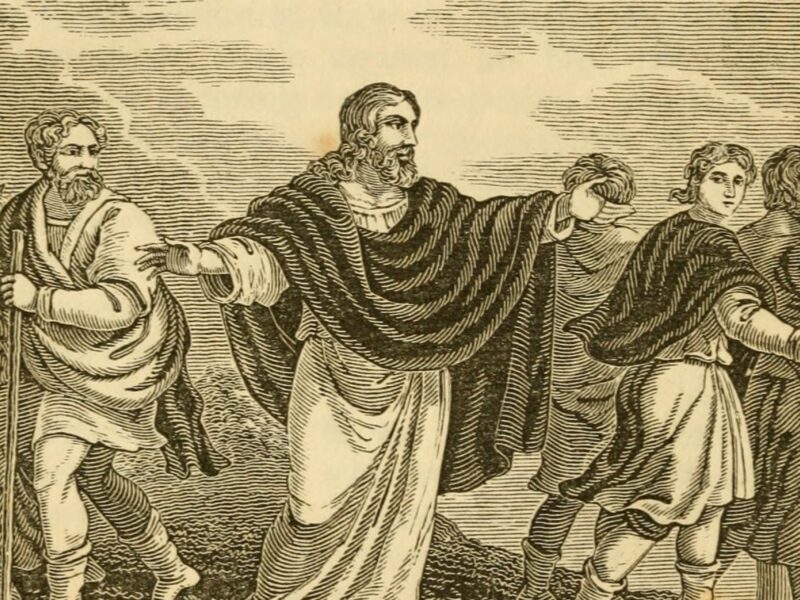
It Takes More Than Two
Trinity Sunday. Fr Euan Marley preaches on the love that has no past tense.
‘Two is company, three is a crowd.’ ‘It takes two to tango.’ ‘Just the two of us.’ ‘Tea for two, just me and you.’
That’s a random selection of truisms, trite sayings, or snatches of songs that stick in the mind. It bears witness to a truth about human nature, that two is a great deal more than twice one, when we are talking about human beings. The difference between being alone and being with someone else is immeasurable. Think of Robinson Crusoe, when he discovers footsteps on his hitherto deserted island.
Yet at the same time, it suggests that two is a natural number for community. If there are two people there is community, if they belong to one another, they are somehow fulfilled in the way that no solitary person is. As I once said presiding over a wedding of a friend, you must know things about each other that no-one else knows, and do things for each other that no-one else does, and in this way be something for each other that no-one else is, and that will be your marriage.
We think of two as the natural number, in fact Plato thought that it was the first number, since one is meaningless as a number unless there is one more of the same sort with which to be compared.
Even in larger groups, it resolves itself into two. Politics that works tends to resolve itself into two parties, Conservative and Labour, Republican and Democrat, and if you want to give other examples for other countries, I did say ‘politics that works’. Opinions boil down to two options, teams play one another. Either we are alone or we are in a relation to another, even a negative relation where there is anger, or hatred. In wars too, the complexities resolve themselves into two sides against each other.
Yet the teaching of Christianity, its deepest conviction, is that three is the true number of relationship, not two. How can that be? How can the God who is three create a reality that seems to resolve itself into two?
In fact the answer is quite simple. Jesus said ‘Where two or three are gathered in my name, I am there among them’ (Matthew 18:20). Scholars often dismiss the oddity of the two possible numbers as a semitic idiom, but while this might well be true, I think Jesus is saying something else. What he is saying is that if there are two gathered together, there is also, by the nature of things, three. The two can only be two because there is between them a relationship, and this is the third thing.
Between two, there is always another. It may be another thing, which not only make the two be in relationship to one another, but often make them to be what they are. Two football teams would not be football teams, if there was no football to relate them to one another. A husband and wife, would not exist as husband and wife without marriage. You couldn’t be unmarried and still be a husband. The relationship is a kind of being.
In our world, not all relationships are relationships of love. We can be bound to one another by hatred, by competition, by anger. Yet even there, it is love that lurks at the heart of things. We hate people because we want them to be objects of love. We hate them because we want to love them but cannot. There is nearly always a germ of love to be found in great hatred, a love which is never quite extinguished.
The bitterness of marriage often witnesses to that, and the death of one partner so often reveals this. There is a beautiful line in Evelyn Waugh’s Brideshead Revisited, where Cordelia, a young girl, speaking of her sister and her brothers says, ‘She never loved him, as we do.’ The narrator to whom she is speaking picks up on what she is saying, and comments
‘Do.’ The word reproached me; there was no past tense in Cordelia’s verb ‘to love.’
Of its nature, there is indeed no past tense in the verb ‘to love’. The Trinity is the proof of this. In our world, lots of things are alienated from their own nature. Lots of things are, in the deepest sense, not quite themselves. This is why we seek redemption. This is why the Holy Trinity is the sign of our redemption. With them, the two are always three, because the two are always in love, and love is in them, and one day, by their grace, there will be love for all, without a past tense.


